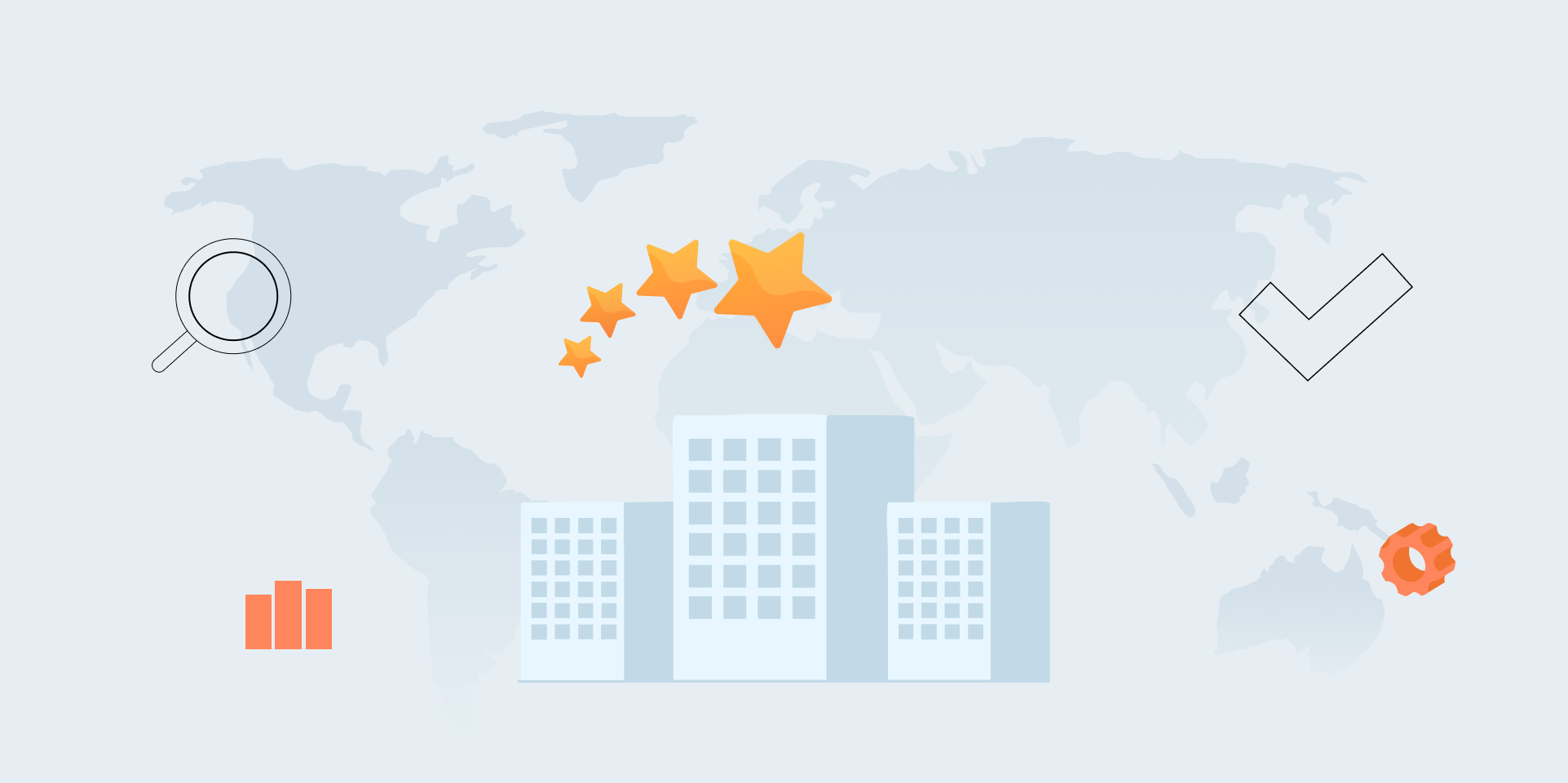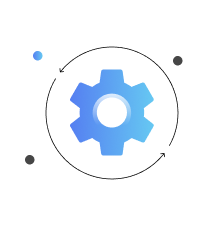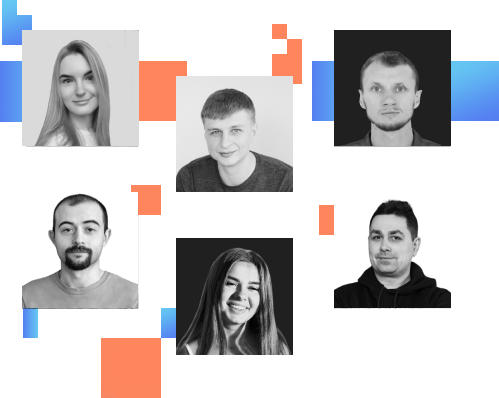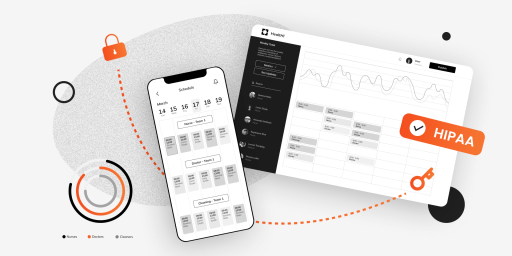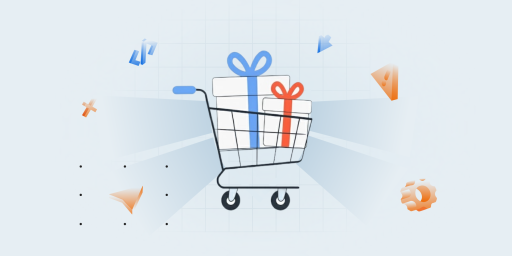Bad QA decisions cost real money. User churn, emergency fixes, regulatory fines, and damaged reputation — all because someone picked the wrong testing partner or tried to handle everything in-house without the right expertise.
Software complexity keeps growing, release cycles keep shrinking, users expect perfection from day one. Software testing outsourcing companies are here to share the burden. The best ones don’t just find bugs — they prevent disasters, accelerate launches, and give you confidence that your product won’t embarrass you in production.
Most QA outsourcing companies sound exactly the same on paper. Everyone claims “comprehensive testing,” “AI-driven solutions,” and “24/7 support.”
The difference is in the execution.
We analyzed the leading quality assurance outsourcing companies based on real client feedback, technical capabilities, industry recognition, and proven results. Not marketing claims — actual performance.
Here are the top software QA outsourcing companies that consistently deliver when it matters.
Key Takeaways
Industry expertise beats generic experience every time. Healthcare, fintech, and gaming each have unique risks. Choose providers with proven track records in your specific sector.
Automation maturity is non-negotiable. Manual-only testing won’t scale. Look for 60%+ automation rates and AI-enhanced testing capabilities.
Certifications predict reliability. ISO 27001, CMMI Level 3+, and industry-specific certifications indicate mature processes and lower risk.
Onboarding speed reveals competence. Top providers deliver first results within 2 weeks. Extended “learning periods” signal inexperience.
Communication quality matters more than time zone overlap. Clear reporting, dedicated project managers, and proactive escalation prevent most project failures.
Client retention rates don’t lie. Average relationships of 18+ months indicate consistent value delivery. High turnover signals problems.
Top 10 Software Testing Outsourcing Companies
We analyzed dozens and dozens of providers based on client feedback, technical capabilities, industry certifications, and proven results with enterprise clients. These top software testing outsourcing companies consistently deliver when stakes are high — from startups scaling fast to Fortune 500 companies managing complex releases.
Each company has been evaluated on automation maturity, industry expertise, global delivery capabilities, and track record with similar projects.
#1. TestFort
USA, EU, UK
TestFort has been delivering QA and test automation solutions since 2001, with over 250 specialists and 24 years of engineering-led expertise. Part of the QArea Group, they specialize in AI-enhanced testing, automation frameworks, and full-scale QA support for enterprise and mid-market businesses.
Core capabilities & competitive advantages
- AI-enhanced testing methodology with predictive defect analysis and self-healing test frameworks
- Full-cycle QA services covering functional, performance, security, mobile, API, and blockchain testing
- Enterprise-grade certifications: ISO 27001, CMMI Level 3, Google Cloud Partner, Microsoft Partner
- 180+ ISTQB-certified QA engineers with deep expertise across multiple domains
- Advanced automation at scale using cutting-edge tools for web, mobile, and desktop applications
- Industry recognition: Multiple European Software Testing Awards winner (2021, 2022, 2023)
- Notable clients: TuneIn, Skype, Dashlane, HuffPost, major UK Neobank
TestFort combines deep technical expertise with proven enterprise-grade processes that deliver measurable results. Their AI-enhanced QA solutions and predictive defect analysis help prevent issues before they reach production, while their mature processes ensure consistent, reliable service delivery.
Learn how we resolved 672 payment bugs with 80%+ success rate across 12 devices for a leading UK fintech.
#2. QA Wolf
USA
Founded in 2019, QA Wolf specializes in 100% automated web and mobile application testing with a “zero-effort” approach. They guarantee 80% automated end-to-end test coverage in weeks, with 15-minute QA cycles through parallel test infrastructure.
Core capabilities & competitive advantages
- 100% automation focus with guaranteed 80% end-to-end test coverage in weeks
- 15-minute QA cycles through advanced parallel test run infrastructure
- Zero-effort automated QA combining AI technologies with in-house QA expertise
- Specialized testing: Salesforce, SAP, performance, and accessibility testing
- 4.8-star Clutch rating based on 49 client reviews
- Rapid deployment: Get automated testing running without heavy setup or maintenance
- Notable clients: Gumroad, MainStreet Work, Mailchimp, Possible, Replay, Padlet
Their AI-first automated testing approach eliminates the traditional bottlenecks of manual QA setup and maintenance. Fast-moving companies choose QA Wolf because they can achieve comprehensive test coverage quickly without dedicating internal resources to test infrastructure management.
#3. Testlio
USA, EU, UK
Testlio operates as a 100% remote organization with over 1,400 active testers across 150+ countries. Founded in 2012, they specialize in global crowd testing that leverages real-world scenarios, localization, and user feedback collection.
Core capabilities & competitive advantages
- Massive global network: 1,400+ active testers plus 10,000+ vetted on-demand freelancers
- Real-world testing scenarios across 150+ countries with authentic devices and networks
- Crowd testing specialization: Professional testers for localization and internationalization
- DevOps integration with customer issue trackers and test management tools
- Automation center of excellence combining manual and automated testing approaches
- Technology stack: Playwright, JavaScript/TypeScript, Docker, AWS
- 51 G2 Summer 2024 badges including 8 Leader Badges and 4 High Performer badges
- Notable clients: CBS, Microsoft, NBA, Fox, Amazon, Netflix, Thrive Market
Their distributed global testing network provides authentic real-world validation that internal teams can’t replicate. Enterprises choose Testlio when they need genuine user experience testing across diverse markets, devices, and network conditions at scale.
#4. Cigniti
USA
Cigniti began in 1998 and has grown to 4,200+ employees globally. They specialize in Digital Assurance and AI-driven testing with deep expertise in regulated industries, holding extensive certifications including CMMI Level 5 and healthcare-specific ISO 13485.
Core capabilities & competitive advantages
- Enterprise scale: 4,200+ employees serving 600+ clients across 25 countries
- Highest-level certifications: CMMI Level 5, ISO 27001, ISO 13485 (medical devices), HIPAA
- AI-driven testing specialization with next-generation testing methodologies
- Industry expertise: Deep knowledge in healthcare, finance, manufacturing, airlines
- Comprehensive services: Quality Engineering, Advisory, Transformation, Core Testing
- Advanced testing: AI Testing, Big Data Analytics, Blockchain, Cloud Migration, IoT, 5G
- Major recognition: Frost & Sullivan Customer Value Leadership Award, Stevie Awards
- Fortune 500 clients: AstraZeneca, Aviva, JohnDeere, Toyota, Ryanair, NewYorkLife
Their enterprise-scale capabilities combined with industry-specific expertise make them the go-to choice for Fortune 500 companies in highly regulated sectors. The CMMI Level 5 maturity and specialized healthcare certifications provide unmatched assurance for complex compliance requirements.
#5. TestingXperts
USA, EU
Overview: Founded in 2013, TestingXperts has rapidly scaled to 1,000-5,000+ professionals globally. They focus on Next-Gen testing including AI, RPA, and blockchain testing, with a strong emphasis on digital assurance and quality engineering.
Core capabilities & competitive advantages
- Global footprint: Offices across US, UK, Canada, Netherlands, South Africa, UAE, India, Singapore
- Next-Gen specialization: AI testing, RPA testing, blockchain, IoT, Big Data testing
- Digital transformation focus with DevOps, Agile, and continuous testing integration
- Industry leadership recognition: Gartner Market Guide, NelsonHall NEAT Leader 2024
- Award-winning culture: “Great Place to Work Certified” for 5 consecutive years
- Major industry awards: North American & European Software Testing Awards, DevOps Industry Awards
- Forbes Global 2000 partnerships across travel, automotive, airlines, healthcare, finance
- Comprehensive automation covering web, mobile, API, and enterprise applications
Their cutting-edge approach to emerging technologies and proven ability to attract top talent make them ideal for companies undergoing digital transformation. The consistent “Great Place to Work” certification ensures low turnover and deep expertise retention.
#6. QArea
USA, Malta
Founded in 2001, QArea is known for delivering high-quality custom software solutions across diverse business needs, with strong QA expertise that fully covers end-to-end software testing.
Core capabilities & competitive advantages
- Two-decade expertise with over 800 completed projects across diverse industries
- Global presence: UK, Malta, USA
- Range of testing services: covers web applications, mobile applications, websites, corporate ERP and CRM systems, and more
- Comprehensive testing: Automated, manual functional, performance, compatibility testing
- Enterprise client base: Global customers including Fortune 500 companies
- ISO certified quality management system
- Industry recognition: European Software Testing Awards, Clutch
- Notable clients: The Huffington Post, Last mile health, Skype
QArea works with different clients for more than 24 years, ranging from well-established companies to small but ambitious startups. With a strong international presence, QArea has numerous awards under its belt and companies like The Huffington Post, Last mile health and Skype among its clients.
#7. Qualitest Group
USA
Founded in 1997, Qualitest is recognized as the world’s largest AI-led quality engineering specialist with 1,000-9,999 employees. They serve over 31,000 customers in 122+ countries with comprehensive testing technologies.
Core capabilities & competitive advantages
- World’s largest AI-led QE specialist with unmatched scale and expertise
- Massive client base: 31,000+ satisfied customers across 122+ countries
- 100% application testing focus with tailored quality engineering solutions
- Fortune 500 specialization with deep industry-specific knowledge
- Global presence: Offices in US, Canada, UAE/GCC, APAC with distributor network
- Advanced technologies: Automation, AI, blockchain, XR (Extended Reality) testing
- ISO 9001 certified with focus on exceptional products and customer service
- Recent awards: 5 Stevie Awards 2024, Everest Group Leader recognition
- Elite clients: 3M, Apple, Boeing, NASA, Tesla, Toyota, Samsung, SpaceX
Their massive scale and proven track record with the world’s most demanding companies provide unmatched reliability for complex, high-stakes projects. When Fortune 500 companies need guaranteed delivery with global reach, Qualitest’s size and experience provide crucial risk mitigation.
#8. QA Mentor
USA
Founded in 2010, QA Mentor manages 300+ global QA resources across six countries. They offer over 30 QA testing services including human intelligence software testing, performance engineering, and AI-enabled testing.
Core capabilities & competitive advantages
- Comprehensive service portfolio: 30+ QA testing services covering all testing types
- Global resource management: 300+ QA professionals across 6 countries and 8 offices
- Multi-industry expertise: 9 industries including e-learning, gaming, finance, healthcare
- Extensive client base: 476 clients from 28 countries, from Fortune 500 to startups
- Premium certifications: CMMI Level 3, ISO 27001, ISO 9001, ISO 20000-1
- Unique services: QA candidate interviews, advisory subscriptions, architecture inspection
- Exceptional recognition: 102 industry awards including Top Software Testing Company 2023
- Strategic capabilities: Agile QA, security testing, RPA, AI-enabled testing, automation
Their breadth of services and proven track record across diverse industries make them ideal for companies needing a comprehensive QA partner. The 102 industry awards and multi-certification approach demonstrate consistent excellence across all service areas.
#9. BugRaptors
USA, India
Founded in 2016, BugRaptors is a pure-play software testing company with 250-999 employees, including 200+ ISTQB-certified testers. They specialize in future-ready testing including AI & ML, blockchain, and IoT testing.
Core capabilities & competitive advantages
- Pure-play QA focus: 100% dedicated to software testing and quality assurance
- 200+ ISTQB-certified testers ensuring standardized testing expertise
- Future-ready technologies: AI & ML testing, blockchain, IoT, cloud testing
- Comprehensive automation: Mobile, web, API testing with advanced frameworks
- Specialized services: Game testing, accessibility testing, RPA testing, GDPR compliance
- Dual-shore model: US headquarters with cost-effective Indian testing labs
- Rapid growth recognition: Multiple awards since 2018 across AI, mobile, cybersecurity
- Diverse industry coverage: Healthcare, telecom, retail, energy, banking, real estate
- Test Center of Excellence (TCOE) setup and consulting services
Their pure-play focus on testing combined with cutting-edge technology expertise makes them ideal for companies seeking specialized knowledge in emerging tech areas. The rapid award accumulation since 2016 demonstrates fast-growing capabilities and market recognition.
#10. ScienceSoft
USA, EU, UK
Founded in 1989, ScienceSoft brings 35+ years of IT expertise with 750+ professionals globally. They offer full-range QA services alongside comprehensive IT consulting, with strong expertise in healthcare and finance.
Core capabilities & competitive advantages
- 35+ years of IT expertise with deep institutional knowledge and proven longevity
- Eight global locations: USA, Finland, Poland, Latvia, Lithuania, Saudi Arabia, UAE
- 30+ industry specializations with particular strength in healthcare and finance
- Comprehensive IT services: Beyond QA – software development, cybersecurity, data analytics
- TCoE setup expertise: Test Center of Excellence development and evolution support
- Premium certifications: ISO 9001, ISO 27001, Microsoft Partner, AWS Partner, Oracle Partner
- Consistent recognition: Financial Times Americas’ Fastest-Growing Companies (2022-2025)
- Healthcare specialization: Medical devices, biotech, pharma, providers, payers expertise
- Full testing spectrum: Functional, performance, security, automation, mobile, web, usability
Their unique combination of deep QA expertise with comprehensive IT consulting capabilities makes them ideal for companies seeking both testing services and strategic technology guidance. The 35+ year track record provides unmatched stability and institutional knowledge.
Let’s discuss your testing challenges.
30-minute consultation to explore how our automation expertise can fit your development workflow.
How to Choose a QA Outsourcing Company That Won’t Slow You Down
Most outsourcing software testing companies will promise you the world during sales calls, then disappear into a black hole of missed deadlines and generic bug reports.
You’ll get beautiful dashboards showing “testing progress” while critical issues slip through to production. You’ll have weekly status meetings where everything sounds fine until users start complaining. You’ll pay for “comprehensive testing” that somehow misses the exact scenarios your customers use every day.
The difference between good and bad QA outsourcing isn’t obvious from websites or proposals. It’s in the details — how they handle your specific challenges, integrate with your processes, and communicate when things go wrong.
Use these criteria to separate companies that actually deliver from those that just talk a good game:
Match their expertise to your specific risks and industry requirements
Generic QA experience isn’t enough. Healthcare needs HIPAA compliance and medical device testing. Fintech requires security testing and regulatory knowledge. Gaming needs performance testing under extreme loads.
Questions to ask:
- “Show me 3 similar projects you’ve completed in our industry in the last 12 months.”
- “What specific compliance certifications do you hold for our sector?” (ISO 13485 for medical, SOC 2 for SaaS, etc.)
- “How do you handle our industry’s unique testing challenges?” (PCI compliance, GDPR, FDA regulations)
- “Can you provide references from companies with similar complexity and scale?”
✅️Detailed project examples with specific challenges and outcomes. Immediate recognition of your industry’s regulatory requirements. References from recognizable companies in your sector.
🚩 Vague answers about “experience across many industries” without concrete examples.
Evaluate their onboarding speed and knowledge transfer process
Top companies get productive within 2 weeks, not 2 months. Slow onboarding indicates either poor processes or lack of relevant experience.
Questions to ask:
- “What’s your typical onboarding timeline from contract to first test results?”
- “How do you learn our product without extensive documentation?”
- “What information do you need from us to get started effectively?”
- “Can you show us your onboarding checklist and process?”
- “How quickly can you scale up if we need more testers mid-project?”
✅️Structured onboarding process with clear milestones. Minimal documentation requirements to get started. Realistic timelines (1-2 weeks for first results).
🚩Requests for extensive training periods or complete documentation before they can begin.
Test their automation maturity and technical capabilities
Manual testing alone won’t scale in modern development cycles. Look for companies with proven automation frameworks, AI-enhanced testing, and seamless CI/CD integration.
Questions to ask:
- “What’s your current automation vs. manual testing ratio for similar projects?”
- “Which automation tools and frameworks do you use with our tech stack?”
- “How do you integrate with our CI/CD pipeline?” (Jenkins, GitLab, Azure DevOps)
- “Show us examples of your automation scripts and reporting dashboards.”
- “How do you handle test maintenance when our UI changes frequently?”X
- “What AI or ML tools do you use to improve testing efficiency?”
✅️ High automation ratios (60%+ for web apps). Familiarity with your specific tools and frameworks. Examples of actual automation code and dashboards.
🚩Overemphasis on manual testing or generic automation claims without specific examples.
4. Verify their communication structure and project management approach.
Time zone overlap helps, but communication quality and project transparency matter more. Poor communication kills more projects than technical issues.
Questions to ask:
- “Who will be our main point of contact and what’s their availability?”
- “How do you handle urgent issues outside business hours?”
- “What project management tools do you use and how do we get access?”
- “Show us examples of your weekly status reports and bug tracking.”
- “How do you escalate critical issues to our development team?”
- “What’s your policy on replacing team members if there are performance issues?”
✅️ Dedicated project managers with overlapping hours. Clear escalation procedures. Transparent reporting tools and processes.
🚩 Unclear communication chains or reluctance to provide direct access to team members.
Assess their technical depth with specific scenario-based questions
Vague answers reveal shallow expertise. Detailed technical discussions and problem-solving approaches reveal true capability.
Questions to ask:
- “How would you test our API rate limiting under high load conditions?”
- “What’s your approach to testing microservices with complex dependencies?”
- “How do you handle cross-browser compatibility testing for our supported browsers?”
- “Walk us through how you’d set up performance testing for our expected user load.”
- “How do you test mobile apps across different devices and OS versions?”
- “What’s your strategy for testing third-party integrations we can’t control?”
✅️ Specific methodologies and tools for each scenario. Understanding of technical constraints and trade-offs. Questions about your specific requirements and constraints.
🚩 Generic answers that could apply to any project, or inability to discuss technical approaches in detail.
Review their client retention rates and long-term partnership approach
High client turnover indicates problems with delivery or relationship management. The best companies maintain multi-year partnerships.
Questions to ask:
- “What’s your average client relationship length?”
- “Can you provide 3 references from clients you’ve worked with for over 2 years?”
- “How do you handle contract renewals and pricing adjustments?”
- “What happens if we’re not satisfied with the team performance?”
- “How do you ensure knowledge retention when team members change?”
✅️ Average client relationships of 18+ months. Multiple long-term client references. Clear processes for handling performance issues.
🚩 Evasiveness about client retention or inability to provide long-term references.
Understand their security practices and data handling procedures
Your code and data will be in their hands. Security breaches can destroy your business, especially in regulated industries.
Questions to ask:
- “What security certifications do you hold?” (ISO 27001, SOC 2, etc.)
- “How do you protect our source code and sensitive test data?”
- “What’s your policy on using our production data for testing?”
- “Do your testers sign NDAs and what are the enforceability terms?”
- “How do you handle secure remote access to our systems?”
- “What’s your incident response plan if there’s a security breach?”
✅️ Current security certifications with specific numbers and dates. Detailed data protection procedures, clear incident response plans.
🚩 Vague security claims without certifications or detailed procedures.
Evaluate their pricing transparency and engagement flexibility
Hidden costs and rigid contracts often signal trouble. The best providers offer flexible engagement models with clear pricing.
Questions to ask:
- “What’s included in your base rate and what costs extra?”
- “How do you handle scope changes and additional testing requests?”
- “Can we start with a pilot project before committing to a larger contract?”
- “What’s your policy on scaling the team up or down mid-project?”
- “How do you price automation setup vs. ongoing test execution?”
- “What happens if the project takes longer than expected?”
✅️ Transparent pricing with clear inclusions/exclusions. Flexible engagement options including pilot projects. Fair policies for scope changes and scaling.
🚩Reluctance to discuss pricing details or inflexible contract terms.
Trust your instincts during these conversations. The best QA outsourcing companies will welcome detailed technical discussions and provide specific, confident answers. Companies that deflect technical questions, provide only vague assurances, or pressure you to sign quickly are probably not the right fit.
Start with a pilot project whenever possible. Even the most impressive presentations can’t predict how well you’ll work together day-to-day. A 2-4 week pilot project will reveal communication styles, technical capabilities, and cultural fit before you commit to a larger engagement.
Wrapping Up: QA outsourcing companies | Choosing your vendor
The best software testing outsourcing companies don’t just find bugs — they prevent disasters and accelerate your release cycles.
- Automation and AI-enhanced testing are no longer optional for competitive advantage
- Industry-specific expertise significantly reduces risk in regulated sectors
- Process maturity (ISO, CMMI certifications) correlates strongly with consistent delivery
- Geographic distribution enables flexible cost and collaboration models
Choose based on your primary need: Cost efficiency (offshore models), speed (automation-focused providers), or risk mitigation (certified, enterprise-grade processes).
The companies on this list have proven track records with recognizable clients, industry certifications, and consistent client satisfaction. They’ve invested in the processes, tools, and expertise needed to handle complex testing challenges.
Don’t compromise on QA to save a few dollars upfront. The cost of fixing production issues always exceeds the investment in proper testing. Start with a pilot project to evaluate their capabilities, communication, and cultural fit before committing to larger engagements.
The right quality assurance outsourcing company becomes an extension of your team — not just a vendor, but a strategic partner in delivering software that works.
Frequently Asked Questions
 How much does it cost to work with the best software QA outsourcing companies?
How much does it cost to work with the best software QA outsourcing companies?
Pricing varies significantly based on location, expertise, and engagement model. Offshore providers (India, Eastern Europe) typically range from $25-50/hour, while onshore US providers charge $75-150/hour. The best companies often cost 20-30% more than average providers, but the reduced risk and faster delivery usually justify the premium.
 What’s the main difference between top-tier and average outsourced software testing companies?
What’s the main difference between top-tier and average outsourced software testing companies?
Top-tier providers focus on prevention rather than just detection. They integrate with your development process, provide strategic insights, and use automation to accelerate releases. Average providers mainly execute test scripts and report bugs without adding strategic value to your development lifecycle.
 How quickly can top software QA outsourcing companies get productive on my project?
How quickly can top software QA outsourcing companies get productive on my project?
The best providers typically deliver first test results within 1-2 weeks and reach full productivity within 4-6 weeks. Companies requiring 2+ months for onboarding usually lack relevant experience or efficient processes. Always ask for specific timelines during vendor evaluation.
 Should I choose onshore, nearshore, or offshore QA outsourcing?
Should I choose onshore, nearshore, or offshore QA outsourcing?
It depends on your priorities. Onshore offers the best communication and cultural fit, but costs more. Nearshore (Mexico, Eastern Europe) balances cost and collaboration. Offshore provides maximum cost savings but may have communication challenges. The best software QA outsourcing companies offer hybrid models combining multiple locations.
 What are the biggest risks when outsourcing QA, and how do I avoid them?
What are the biggest risks when outsourcing QA, and how do I avoid them?
The main risks are poor communication, security breaches, and lack of domain knowledge. Mitigate these risks by selecting certified providers (ISO 27001, CMMI), initiating pilot projects, and implementing clear communication processes. Always verify their experience with your specific technology stack and industry requirements.
Jump to section
- Key Takeaways
- Top 10 Software Testing Outsourcing Companies
- How to Choose a QA Outsourcing Company That Won’t Slow You Down
- Match their expertise to your specific risks and industry requirements
- Evaluate their onboarding speed and knowledge transfer process
- Test their automation maturity and technical capabilities
- Assess their technical depth with specific scenario-based questions
- Review their client retention rates and long-term partnership approach
- Understand their security practices and data handling procedures
- Evaluate their pricing transparency and engagement flexibility
- Wrapping Up: QA outsourcing companies | Choosing your vendor
- Frequently Asked Questions
- How much does it cost to work with the best software QA outsourcing companies?
- What’s the main difference between top-tier and average outsourced software testing companies?
- How quickly can top software QA outsourcing companies get productive on my project?
- Should I choose onshore, nearshore, or offshore QA outsourcing?
- What are the biggest risks when outsourcing QA, and how do I avoid them?
Hand over your project to the pros.
Let’s talk about how we can give your project the push it needs to succeed!
